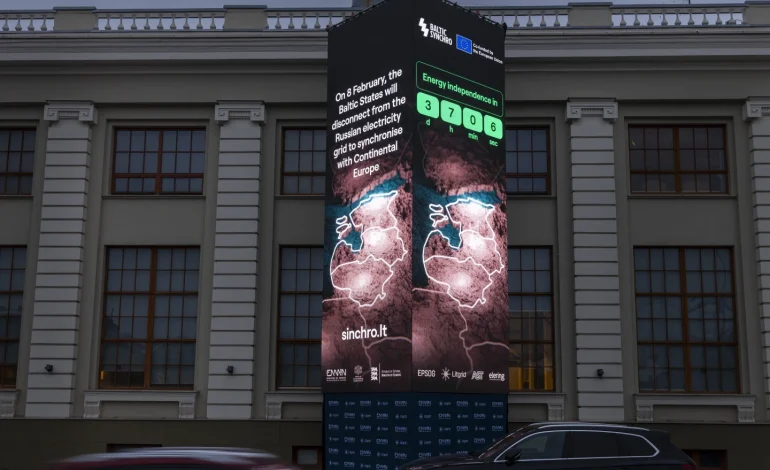Baltic States Disconnect from Russian Electricity Grid, Prepare for Integration with European Network

Estonia, Latvia, and Lithuania officially disconnected from the Russian electricity grid on Saturday, severing ties dating back to the Soviet era, The Associated Press reports.
The move marks a significant step for the Baltic nations as they prepare to synchronize with the European energy network on Sunday.
Over three decades after the collapse of the Soviet Union, this disconnection ends the Baltic states’ remaining infrastructure links to Russia.
On Saturday morning, transmission lines connecting the Baltic states to Russia, Belarus, and the Russian exclave of Kaliningrad were systematically switched off. Lithuania initiated the process, followed by Latvia and Estonia.
For a 24-hour period, the Baltic Power System was operating independently before its planned integration with the European energy networks on Sunday afternoon. This integration has been facilitated through existing connections with Finland, Sweden, and Poland.
Relations between the Baltic countries, which are all NATO members, and Russia have often been strained since their declaration of independence from the USSR in 1990. The situation has further deteriorated following the conflict in Ukraine in 2022.
In preparation for the disconnection, sixteen power lines formerly connecting the Baltic states to Russia and Belarus have been dismantled in recent years. This has allowed for the development of a new grid linking them to the rest of the EU, including the installation of underwater cables in the Baltic Sea.
In 2024, the leaders of Estonia, Latvia, and Lithuania, which share a 1,015-mile border with Russia and Belarus, informed Moscow and Minsk of their disconnection plans to mitigate any potential hostile reactions. Assurances have been given that the transition will proceed smoothly, with special measures taken to prevent potential disruptions. In Latvia, the National Armed Forces and the National Guard have been instructed to operate in a reinforced mode.
Notably, the Russian electricity market features centralized regulation and relatively stable prices, while the European market’s prices fluctuate based on supply and demand, influenced by exchange mechanisms, weather conditions, and unforeseen emergencies.
The Kaliningrad region, which is geographically separated from mainland Russia, currently relies on its own internal power generation capabilities.







